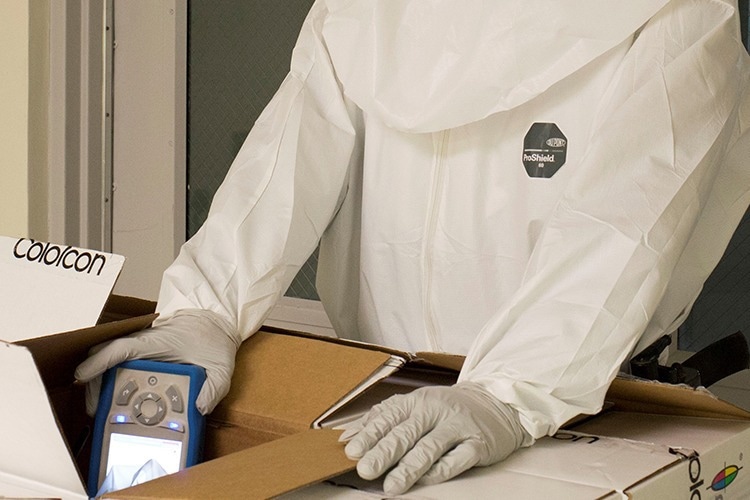
This webinar explored the use of the Thermo Scientific™ TruScan™ RM Handheld Raman Analyzer with TruTools™ on-board chemometrics to verify the identity of challenging raw materials.

In this webinar, Thermo Fisher Scientific discussed a portable XRF instrument, the Thermo Scientific IonicX™Portable XRF Analyzer, and explained how it could identify ionic salts in a matter of seconds, replacing traditional time-consuming and resource-intensive wet chemistry and benchtop methods.
In pharmaceutical manufacturing, handheld Raman analyzers are widely accepted for material verification of excipients and APIs. For many years the pharmaceutical industry has used TruScan RM Handheld Analyzer's embedded multivariate residual analysis decision engine to identify most pharmaceutical raw materials directly.
When characterizing complex samples such as structural analogs, highly similar formulated materials, or contaminated materials, building chemometric models to enhance specificity is necessary. The webinar will use TruTools on-board chemometrics as real-world examples to discriminate:
- Various colors of Opadry solid dosage film coatings
- Different molecular weight polyethylene glycols (PEGs)
- Diethylene glycol (DEG) contaminated glycerol
- Structural analogs povidone and crospovidone
- Buffer solutions
TruTools offers advanced pre-processing of spectral data, qualitative discrimination, quantitative component analysis, and customized chemometric models, including PLS, PCA, and PLS-DA.
Complementary to the use of Raman and NIR portable instruments for raw material ID is the new IonicX portable XRF analyzer for identity testing of pharmaceutical ionic salts. Built for biopharmaceutical manufacturing, IonicX is 21 CFR part 11 compliant and employs a patented algorithm C-value which allows ionic salts to be identified in seconds using portable X-Ray fluorescence.
Join Dr. Lin Chen, Thermo Scientific Application Scientist, and learn more about the enhanced capabilities of portable instruments for raw material verification. A questions and answers session followed the presentation.
Learning outcomes
- Learn how to identify challenging raw materials by using handheld Raman with on-board chemometrics
- Understand how TruTools enables customized chemometric modeling, including PCA, PLS, and PLS-DA
- Understand how to measure ionic salts quickly with portable XRF
About the speaker

Dr. Lin Chen is a Field Applications Scientist (EMEA) at Thermo Fisher Scientific and is responsible for the technical and applications support for Portable Analytical Instruments (Raman/NIR spectrometers) in raw materials verification and PAT control.
Lin has over 16 years of experience in the use of vibrational spectroscopy and chemometric analysis for a wide range of application areas in the pharma, food, and chemical industries.
Prior to joining Thermo Fisher Scientific, Lin worked as an applications engineer in Pyreos, UK, contributing to the development of the new generation of portable mid-FTIR instruments for the food and oil industries. Her intense commitment to customers and trouble-shooting capability have made customers’ projects successful.
Before moving her career into industry, she spent over ten years in academic research work and teaching in universities internationally. Lin holds a Ph.D. in Physical Chemistry (2002) from the Department of Chemistry, Tsinghua University, and a Master’s degree in Organic Chemistry (1999) from the Dalian University of Technology, Dalian, China.